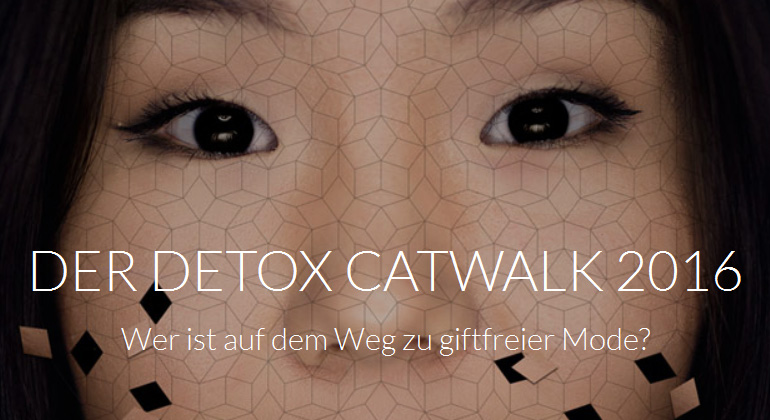Which fashion brands are going toxic-free?
It was a massive step when Adidas, Puma and Nike promised to go toxic-free by 2020. But when we turned our attention to other companies, the rest of the industry put up resistance.
“It’s not feasible what Greenpeace wants us to do,” companies would say to me. “No global fashion company can make their supply chains fully transparent and ban all toxic chemicals from all steps of production.”
But for the last years, fashionistas, models, activists and bloggers around the world proved them wrong.
Now, over 70 fashion brands and suppliers have committed to Detox by 2020, and remove toxic chemicals from their supply chains. Combined, they account for some 15 percent of global textile production.
And few, if any, companies are now questioning if going toxics-free is possible. The only question today is: How fast do we go?
The goal is to go toxic-free by 2020.
To check on companies’ progress made towards the 2020 goal, we’re publishing the Detox Catwalk. It’s an online platform ranking 19 fashion and sportswear companies, and it shows again: cleaning up fashion supply chains IS possible.
Two of the world’s biggest fashion companies, H&M and Zara (Inditex), together with the mid-sized Italian brand Benetton are proving this. They have worked hard over the past few years, banning hazardous chemicals from their production, publishing wastewater data for better transparency, and publishing supplier’s lists. They are the “Detox Avant-Garde”.
But there are 16 out of 19 assessed fashion and sportswear brands that are not advancing fast enough. Nike, LiNing, Esprit and Victoria’s Secret are among those in the “Faux Pas” category.
And there are 12 brands in “Evolution Mode”, including Adidas, Burberry, Levi’s and Valentino. They need to speed up to reach their 2020 goal of clean fashion.
It’s time we keep these companies on their toes and remind them of their promise. In the remaining years, we will re-assess their progress to make sure they are toxic-free by 2020.
And this is just the tip of the iceberg. Mass production of cheap clothes will never be sustainable. Post-growth business models is what we want to talk about next – and with your voice with us, we can transform the entire fashion industry!
Source
Greenpeace International 2016 | Kirsten Brodde is the Detox My Fashion Project Leader based in Greenpeace Germany








